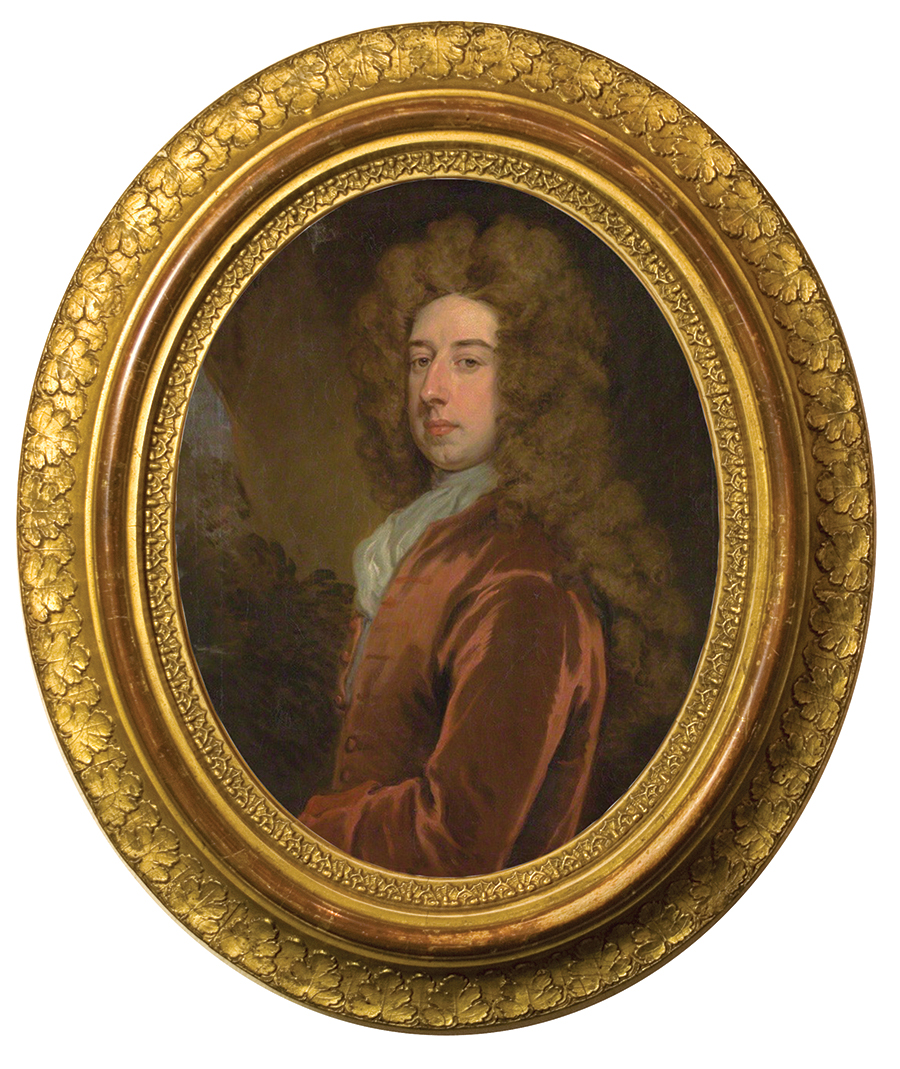The 1st Earl of Wilmington finally has his say
As a fellow Britisher sang many years later, please allow me to introduce myself, I’m a man of wealth and taste.
It’s a trifle odd that I have to provide this introduction, for I am the man your fair city is named after, as well as the Wilmingtons in Vermont, Massachusetts and Delaware. The last also has a housing development named after me — Compton Towers — that has, ahem, weekly bingo.
But I dare say few of you would know much about — or even recognize — The Honorable Spencer Compton, the 1st Earl of Wilmington, the second prime minister of Great Britain and a decent third man on my cricket team at St. Paul’s School, hard by the Thames in London. (Motto: Fide Et Literis, which I preferred to translate as “faith in leisure.”)
Some of my contemporaries and political opponents were fond of saying that I was long on presentation but short on achievement, that my 12 years as speaker of the House of Commons were spent growing my hair and buffing my fingernails while knowing all the answers to the questions I ignored.
History has been vague and unkind to me.
Plodding, lax, ponderous. A man of inaction. The most ordinary of orators. As one bile-filled poet at the time wrote, “See you old, dull important lord, who sits at the long’d for money board.”
I weary of the labels left by lesser members of Parliament whose clutching fingers would soil the perfection of my brocaded waistcoat with gold trim. Their faces are unworthy of sunburning.
Which is why I have come to this Wilmington for the very first time to acquaint you with myself, have a look around and assure you that your city is well-named. I feel comfortable here. The Cape Fear River reminds me of the Thames. Some of the older homes resemble those in Warwickshire, where I was born in 1673. (It was Shakespeare’s birthplace as well.)
My two brothers and I grew up in a vast moated castle, Compton Wynyates, a Tudor manse that compares somewhat to your Biltmore Estate in Asheville. My great-great-grandfather Edmund Compton started building it in 1481. King Henry VIII had his own room there, which is why that suite’s floor is rather scratched and squeaky. Later, Queen Elizabeth I also stayed there. While my childhood friends teasingly pronounced it “WHINEY-ates” let me assure you our family pile is “WINE-yates.”
Yes, my family was rich. My father, James, was the 3rd Earl of Northampton. My beautiful mother, Mary Noel, was the best-dressed woman in England and encouraged me in my life as a dedicated follower of fashion. “If you dress smartly,” she liked to say, “your silence will be interpreted as brilliance.” We come from conservative stock. Tories was the word at the time — God, King, Country! Monarchy beats anarchy! Know your place, and all that.
My older brother was a real pest about it. He could have hosted a conservative talk radio show on your “980 the Wave.” When I’d contradict him, he’d bloody my nose and ruin my ruffled blouse.
Which bent my path toward liberalism and the Whig Party.
Consider the time: The cultural battle between the Whigs and Tories had boiled over several times already. It made today’s fisticuffs between the left and the right look like ballet. People had their heads lopped off, including a vociferous speaker of the house. (Which is why I preferred a more subdued style. I’m quite found of neckwear, you see.)
The Glorious Revolution of 1688 had given Britain a constitutional monarchy and a Bill of Rights, transferring much of the power from the crown to the Parliament. The Whigs and the Tories were elbowing for position, each certain they could save the nation from the certain doom offered by the other. (I’m reminded of the current political state in this land.)
I hadn’t wasted all my time on cricket and haberdashery at Trinity College, Oxford, or at law school in the Middle Temple, home of the Knights Templar. I was born a financial wizard. By age 15 I was counseling my father in his complex web of affairs. And at the Middle Temple I immersed myself in the fascinating world of levies, bounties, peerages and all the other elements that fed the crown and all its people.
Because of my name, my grasp of the inner workings of government and my mother’s motto of appearing smart by looking smart, I became Paymaster of Pensions at the age of 34. I served the Prince of Wales as treasurer.
My former good friend and fellow Whig, Sir Robert “Robin” Walpole, 1st Earl of Oxford, was also rising fast in the Parliament. I was three years his senior, and did my best to encourage him to follow my silken footsteps. But he cared little for fashion. It was power and liberalism he craved, and there is likely never a man more suited to have both. He had both passion and reason, a great persuader, perhaps even greater than the PM who came 200 years later, Sir Winston Churchill.
And rather ruthless he was. When we later had a split in our party and our friendship, Sir Robin referred to me as an “old woman,” and I wasn’t even that old at the time! As an orator, there have been none greater than Sir Robin. Compared to him, as one my contemporaries said unkindly, I seemed to be “an insignificant piece of liver fat.”

Robin even ghost-wrote King George II’s first speech for me, even though it galled him that the new king vastly preferred me and my fashion.
I make no excuses. (As I like to say, excuses are only patches on the garment of failure.) Even though I look the part, I am no leader.
Verily, I felt uncomfortable speaking in front of that boisterous body that is the House of Commons, of which I became Speaker in 1715 at the age of 42. When my fellow MPs unanimously voted me Speaker (because I was tall, quiet and quite dashing), I told King George I truthfully that “I had neither memory to retain, judgment to collect, nor skill to guide their debates.” But his majesty always admired me and confirmed me anyway.
All that shouting and perspiration! Geese have more decorum than the House of Commons.
While history describes my voice as solemn and sonorous, I was best known for not using it. Frequent were the shouts for me to maintain order. Frequently, I ignored them. Let them squabble like rabble to be heard. My silent motto: The loser shall remain speechless. As I liked to tell members of Parliament who whined about being interrupted, “You have a right to be heard, but the House have a right to judge whether they will hear you.”
I was well pleased to let Sir Robin lead. And lead he did, becoming the first minister of finance — what we call Prime Minister today — when I refused the position based on my abject fear of making a hash of it. Plus, there’s that old “faith in leisure” thing. After all, I was expected to take my nightly glass of port at the Kit-Cat Club.
But don’t get the idea I was a slackard. I had my gift for making things work, and England had a lot going on around the world. Lord John Carteret, 2nd Earl of Granville and secretary of state, worked closely with me behind the scenes to sort the complex conflicts of this new style of governing our vast empire. I had the king’s heart and ear and Lord John worked like a termite. We were the ones both the Whigs and Tories could agree upon because we knew how to make a country run. While mocked by some in Parliament and in the toady press, those in the country and distant colonies knew I wasn’t just a pretty face. If they needed help or direction, they would petition Lord Wilmington, receiver of (ahem) the Order of the Garter (and not just because I wore them).
Your lovely and important port town, originally called New Carthage or New Liverpool, had become known as New Town or just Newton. When it was incorporated in 1739, it was named after me, even though I had never stepped a silken slipper upon these shores until now. Three years later, in 1742, Sir Robin was ousted due to the split in the party and differences over the war with Spain.
And thus, quite reluctantly and at King George’s urging, I took Robin’s place as prime minister. I hated it. I was a nervous wreck. My complexion suffered. I became even more taciturn and withdrawn, and the press had a field day with me. Because I was a bachelor, there were those who said I wasn’t man enough for the job, if you get my meaning.
A year and five months in, on July 2, 1743, it killed me.
I’m not quite sure why I have been summoned here from the grave. Clearly there must be some grand purpose other than to clear my name.
I was delighted to learn that there was a Spencer Compton Society in Wilmington that met in a home in the historic district. But when I tracked down one of the former members, he knew virtually nothing about me and said they just liked my name and look (of course) and formed the society “to add some pomp and circumstance to our cocktail hour.”
No one recognized me at a recent City Council meeting where Residents of Old Wilmington (and they said I was stuffy) were having a row with the commoners over home inns. Mayor Bill Saffo didn’t give me a second glance, even though I’m nearly a foot taller than he is and was standing right under the “Spencer Compton Room” sign at City Hall, beside your most dramatic Thalian Hall. (You’ll be hearing from Spencer Compton soon, Mr. Mayor.)
During my wanderings about the area — The Juggling Gypsy, Reggie’s, The Harp, The Coat of Arms, The Copper Penny (not even Spencer Compton can get into the Fork N Cork), the Riverwalk and the streets and alleys — people stare as if trying to place me.
Only William Irvine, the editor of this grand magazine, immediately recognized me. It is he who suggested a regular column as I explore this city that bears my name and the area surrounding it. I will learn to fish, boat, surf and how to relax in shorts without hose. I will allow the rays of the sun to touch my face. I will search out the people, places, history and things that make Wilmington and eastern North Carolina so unique.
And I may straighten out a few things here, quietly, fashionably.
Reading your newspaper, it would seem these are uncertain times, filled with turmoil, fear, distrust and perhaps something in your drinking water. Let me assure you, I’ve seen and sorted out much worse.
Fear not, the Spencer Compton is here.


